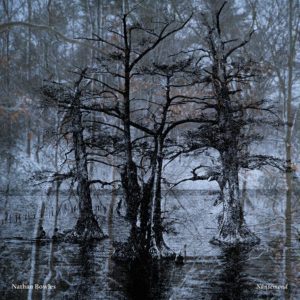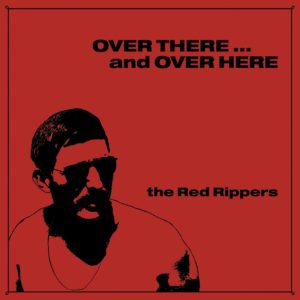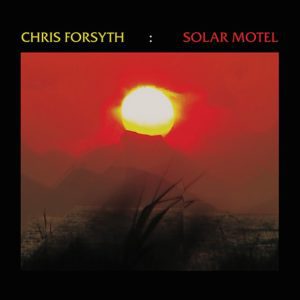The acclaimed Canadians return with an ambitious, allusive third album that achieves a new sonic clarity, depth, and range to match the effortless melodies and extraordinary writing. It’s the band’s most transparent and personal set of songs to date, in which singer Nigel Chapman interrogates social, psychological, and spiritual milieus for clues about the elusive nature of knowledge.
Highlights
- Deluxe 140g virgin vinyl LP features heavy-duty reverse board jacket, color inner sleeve with band photos and lyrics, and high-res Bandcamp download code. Pink vinyl (first PoB color edition) is limited to 600 copies.
- CD edition features 6-panel jacket with LP replica artwork and lyrics.
- Available in other territories from You’ve Changed Records (Canada) and Jagjaguwar (Rest of World).
- RIYL The Only Ones/England’s Glory, The Modern Lovers, Felt, The Clean, The Verlaines, The Go-Betweens, Bedhead, Kurt Vile, Courtney Barnett, Nikki Sudden, Belle & Sebastian, all things Lou Reed.
- Album page
- Artist page/tour dates
- Also check out Whine of the Mystic (PoB-020) and Thought Rock Fish Scale (PoB-024), Nap Eyes’s previous albums
Physical format music purchases from the PoB webstore and Bandcamp include digital downloads when feasible. Some, but not all, pre-2023 vinyl pressings also include a download coupon. For digital preorders and high-resolution digital downloads, please visit our Bandcamp page.
Tracklist
A1. “Every Time the Feeling” 3:12
A2. “I’m Bad” 5:16
A3. “Judgment” 4:16
A4. “Roses” 3:27
A5. “Follow Me Down” 4:02
B1. “You Like to Joke Around with Me” 2:39
B2. “Dull Me Line” 3:28
B3. “Sage” 5:02
B4. “Hearing the Bass” 2:28
B5. “White Disciple” 6:19
X. “Boats Appear” 6:43 (CD/digital only)
Catalog Number/Release Date
PoB-033 / March 9, 2018
Purchase from PoB above or support via
- Bandcamp (LP/CD/digital)
- Other Options (LP/CD/DL/stream)
- Local Record Stores
More from Nap Eyes
-

Nap Eyes: Snapshot of a Beginner
Weight N/A FORMAT CD: $13, LP: $22, LP+CD: $30, MP3: $9, Pink LP: $23, Pink LP+CD: $31
Album Narrative
- Photo by Matthew Parri Thomas.
- Photos by Matthew Parri Thomas.
- Photo by Carolyn Hirtle.
In one inconceivably complex cosmos, whenever a creature was faced with several possible courses of action, it took them all, thereby creating many distinct temporal dimensions and distinct histories of the cosmos. Since in every evolutionary sequence of the cosmos there were very many creatures, and each was constantly faced with many possible courses, and the combination of all their courses were innumerable, an infinity of distinct universes exfoliated from every moment of every temporal sequence in this cosmos.
― Olaf Stapledon, Star Maker (1937)
The concept of the multiverse—the theoretical existence of infinite universes parallel to or interpenetrating our own—exists as a ripe conceit in fiction as well as physics, with Jorge Luis Borges’s 1941 story “The Garden of Forking Paths” perhaps the most famous literary contemplation. But British philosopher Olaf Stapledon’s description in his 1937 novel Star Maker is earlier and weirder, with its tactile, slightly foul, and rather terrifying description of universes “exfoliating,” like some kind of cosmic dandruff, from every critter’s every potential course of action. These convoluted circumstances are encountered by Stapledon’s first-person narrator, a human being whose disembodied “cosmical mind” roves unmoored through eternally expanding spatiotemporal scales, like some kind of cosmological detective searching for origins and eventualities.
Outside of science fiction—IRL—we rarely find those answers, or even those inquiries. They don’t usually arrive in digestible pop song or meme form. So the ambitious, allusive new album by the Canadian band Nap Eyes is an anomaly. These songs position the band’s enigmatic songwriter Nigel Chapman as a Stapledonian “cosmical mind,” an existential detective who interrogates social, psychological, and spiritual milieus for clues about the elusive nature of knowledge. In this role, the song-persona, if not the songwriter, resembles a monkish, beatifically stoned Columbo, vigilantly squinty-eyed in his metaphysical quest for self-understanding, despite ostensible bumbling on the physical plane.
I’m Bad Now, the most transparent and personal Nap Eyes album to date, constitutes the third chapter of an implicit, informal trilogy that includes Whine of the Mystic (2015) and Thought Rock Fish Scale (2016). The brilliantly reductive title is something I’ve heard my four-year-old son and his friends announce verbatim when roleplaying the perennial game of heroes and villains, “good guys” and “bad guys.” “I’m bad now,” he declares, but an equivocal binary is implied: it’s only a matter of time or trading places before he (or anyone) has the capacity for good again. Perhaps goodness will manifest in the multiverse, on a different circuit than this faulty, frayed one. Is that faith or fantasy? And what is the difference? The title is also, of course, a sly Michael Jackson appropriation.
While Nigel composes Nap Eyes songs in their inchoate form at home in Halifax, Brad Loughead (lead guitar), Josh Salter (bass), and Seamus Dalton (drums), who live a twelve-hour drive away in Montreal, augment and arrange them, transubstantiating his skeletal, ruminative wafers into discourses that aim to transcend what Nigel, in the song “Dull Me Line,” self-laceratingly deems “bored and lazy disappointment art.” The band provides ballast and bowsprit to Nigel’s cosmical mind. The nautical metaphor is not just whimsy: Nap Eyes are all Nova Scotians by raising and temperament, acclimated to life on an Atlantic peninsula linked narrowly to the rest of North America (“Follow Me Down,” with its “broad cove” and bay, and “Boats Appear,” with its “steam trails rising from the sea,” both offer an evocative sense of place for these otherwise mental mysteries.) Brad is a physical guitarist whose lyrical grace is matched only by the dark ferocity of his feedback-laced solos. Salter and Dalton exercise an unassuming mind-meld melodicism and vigor, and their gentle thrumming lends a new sonic clarity, depth, and range to match the effortless melodies and extraordinary writing. One couplet herein suggests the exalted life-force of rhythm in the estimation of Nap Eyes: “Hearing the bass as you enter your teens/Exit your life recollecting universal themes.”
The technology of these songs, bass frequencies aside, is essentially catechismal, taking the form of questions and answers posed to assert faith, or to defend doubt. Selected quatrains can tell the tale. The lyrics traffic in second-person address, but the “you” is often Nigel himself, a gaze inward and not, as in the “you” of most romantic pop songs, directed outward to others. The self-interrogation of album opener “Every Time the Feeling” arrives with a subdominant chord and a subdominant attitude, only switching to the first person in the (repeated) final verse, for this devastating admission:
Oh I can’t tell what’s worse:
The meaninglessness or the negative meaning
But I figured out a way
To get on with my life and to keep on dreaming“I’m Bad,” the almost-title track that deletes the temporal anchor of “now,” switches back to the second person self-address in a country-rock inclined tune that is stylistically different than anything the band has attempted, as well as mockingly self-flagellating. “You’re so dumb,” Nigel sings to himself, diagnosing his delusions. Each persona and decision, bad or good, multiplies futures in a recursive multi-mirror funhouse, and the album follows a slow arc toward self-acceptance, and maybe more: ambivalence begets paralysis; paralysis begets self-reproach; self-reproach begets acceptance; acceptance begets joy; joy begets ambivalence. “If there’s a right road, would you/Kindly show me?” he asks in the churning, static-electric “Judgment.” And then:
Think of every single moment in time
That would have faded from your mind
If not for the rewiring process
The synaptic protein fold caressSo choice is an illusion, memory a precarious neuroelectrochemical process, science and religion the two imperfect prongs of a crooked dowsing rod. The Socratic dialogues of “Sage” and “White Disciple” paint opposing philosophical portraits: “the doubtful sage” hopes, with humility, to vanquish “the damp, heavy disappointment of the wasted day,” whereas “White Disciple” pits a would-be novitiate against the dogma professed by a spurious, possibly sinister, guru. A half-baked application of the scientific method similarly fails to manifest the mutant truth, as the dream of “Boats Appear” reports:
It didn’t work when I fed the cells
Such a high ligand dose
Too strong, it masked the effect
The mutant wouldn’t even showSolipsism may at times seem to be Nap Eyes’ primary investigative mode, but some of the loveliest moments involve rare glimpses of connection, anxious invitations to alien others. The galloping rhythmic rush of “Roses” locates an external “you” that remains a mirrored embrace: “People look for their reflections/Everywhere in everyone/Some like a soft glow, some a little sharper depiction.” “You Like to Joke Around with Me” offers such a sharper depiction in the form of a self-portrait:
In the background of a silent city
A hard-pressed individual scolds
Himself for entertaining self-pity
While a nightingale’s cool voice rollsAnd yet our hard-pressed hero is redeemed by friendship: “Last night, my friends surprised me/With gestures of kindness I’d never expect,” catalyzing a minor revelation: “Tuning yourself/To catch another’s wavelength/Sure can make a difference/In this world.” The band itself is tuned to the wavelength of succinctly stinging, guitar-centric rock and roll—in other words, and by today’s genre standards, folk music. The indelible melodic clarity of the instrumentation, coupled with the calm, lucid inquisitiveness of Nigel’s voice elevate certain verses, like this one from “Follow Me Down,” to the heights of everyday poetry:
I went out walking with my headphones on
Classical Indian raga twenty minutes long
Then I listened to old American folk song
A little bit shorter, still a lot going onUltimately, nature (a nightingale’s song) and distance (walking alone in the cold) provide the potential of peace, an escape from the anxious tyranny of the self, as in the rousing finale of “Sage”:
Maybe far away
The night is beautiful and rustic and grey
The rain is rustic, the fields and pastures
Are a deep dark greyWe are very many creatures, with innumerable possible courses to explore. So let fly the cosmical mind into the gray night, dear listener. But don’t take my word for it. Again, Star Maker illuminates: “Barren, barren and trivial are these words. But not barren the experience.”
Videos and Streaming
Acknowledgments
9/10. I’m Bad Now is the real deal… feels as much a modest masterpiece as Spring Hill Fair or Tigermilk. What sets them apart is the fear and trembling in Nigel Chapman’s reedy monotone and guitarist Brad Loughead, who unleashes the full Verlainian screaming bluebird repertoire.
– Stephen Troussé, Uncut
Masters of subtlety. I’m Bad Now slithers through 11 tracks like a phosphorescent python, its diamond-shaped scales emitting both glimmer and gloom.
– Beca Grimm, NPR Music
The band’s warmest and kindest record yet. Not only does Chapman write with more interrogative passion about his inner life than many songwriters twice his age, but here he expands outward, unpacking religious themes on “White Disciple,” pondering connection to others on “You Like to Joke Around With Me,” and wondering what becomes of all our big ideas on the beatific “Sage.” More than ever before the band’s instrumental interplay feels like its own thing, restrained, considered, and riveting. “Please don’t ask me to throw my work away,” Chapman sings over Salter’s rolling bass on album highlight “Judgement,” and it’s clear why. Nap Eyes is doing the best work of its career with I’m Bad Now.
– Jason Woodbury, Aquarium Drunkard
This charming band from Nova Scotia is fronted by Nigel Chapman, who sounds a little like Lou Reed crossed with Richard Thompson and, as that comparison implies, plays a kind of drone-y poker-faced rock ‘n’ roll with folk leanings. Songs on their third LP can be shambling or surprisingly fluid, with the wry sense of humor reflected in the LP’s title.
– John Dolan, Rolling Stone (“11 Great Albums You Probably Didn’t Hear in 2018”)
Possibly the catchiest, most immediate thing they’ve ever done, a deceptively thoughtful rocker that ambles along with a little extra verve.
– Peter Helman, Stereogum
Being bad has never felt so good. The real jamming on I’m Bad Now isn’t happening on the fretboards, but in the lyrics. [Chapman] saves his most bon mots for the astounding “White Disciple,” where the religious undercurrents that have always coursed through Nap Eyes’ music roil into a tsunami. Part Pixies bass rumble, part soulful “Beast of Burden” sway, the song proves to be Chapman’s Mangum opus, a breathless meditation on faith and vice that burrows a winding path from Christianity to Hinduism.
– Stuart Berman, Pitchfork
It’s not just the witty wisecracks and slightly distorted guitars and make I’m Bad Now one of the best albums of the year. Few songwriters write about malaise with as much charm and empathetic chill as Nigel Chapman.
– Aquarium Drunkard (“2018 Year In Review”)
Triangulates the sweet spot between the Grateful Dead, Creedence Clearwater Revival, and Marquee Moon. If that sounds like your thing, I promise that Nap Eyes will be very your thing.
– Stephen Hyden, Uproxx
In just four short years, Nap Eyes have made much ado about meaninglessness with rock ‘n’ roll songs that shake just offbeat and smart lyrics wrapped in bemused ennui.
– Lars Gotrich, NPR Music
9/10. I’m Bad Now radiates confidence and charm with a lucid, pensive writing style. While their previous efforts were certainly accomplished, this shows the group poised on the verge of greatness.
– Evan Lilly, The Line of Best Fit
Well-enunciated post-collegiate ennui… these Halifax gents have it down. The poetic inarticulateness is by design, and the instruments say what needs to be said. Notes careen like stinkbugs and a dude ponders the wisdom of timbre: “If you play guitar like me into the wind/ You might not always know where to begin.
– Will Hermes, Rolling Stone
8.2. They’re a remarkably consistent band, yes, but a remarkably skilled band as well.
– Paste Magazine
It’s a tighter, stronger offering of Chapman’s quick-witted, smart lyricism — with room for the band not to take itself too seriously.
– CBC Music
Their relaxed, scholarly indie-rock imagines the Velvet Underground if they ditched the leathers for wool sweaters. But this languor contrasts with frontman Nigel Chapman’s hyperactive mind, yielding songs that are lucid with laser-like focus and freeze-framed detail.
– Stuart Berman, Pitchfork
One of the most satisfying rock bands making music anymore, with a wit and sound both relaxing and quick.
– Duncan Cooper, The FADER
Chapman’s vision of existence as a borderless ouroboros is toyed with throughout I’m Bad Now. It is a record of conflicting curiosities. Chapman’s songs often read like an equation, usually without one definitive answer; he probes his existence from all sides, never quite reaching the heart of the matter.
– Luke Ottenhof, Vinyl Me Please
The marriage between contemporary indie music and throwback twangy folk is a natural one, a union that Nap Eyes embodies confidently and beautifully.
– UPROXX
Their most accomplished body of work to date and is testament to its four creators continually striving for that perfect mix of fluidity, depth and clarity. As the third and final part of a trilogy that began with their debut four years ago, I’m Bad Now … highlights Chapman’s exquisite prowess for astute observational prose.
– Drowned in Sound
Brimming with passion & protest. Immediately familiar, yet bracingly distinct… one the most intriguingly idiosyncratic lyricists this side of Dan Bejar.
– Pitchfork
One of the best rock bands in business today.
– The FADER
One of the most fascinating songwriters we have today.
– Newsweek
Purveyors of beatific, sun-drenched roadtrip tunes. Nigel Chapman is owner of one of the most beautiful voices I’ve heard in years.
– NME
Unvarnished diarizing in lean, art-pop songs.
– Uncut
Concise, understated alt-rock with cryptic, literate lyrics for Go-Betweens/Bill Callahan fans.
– MOJO
























